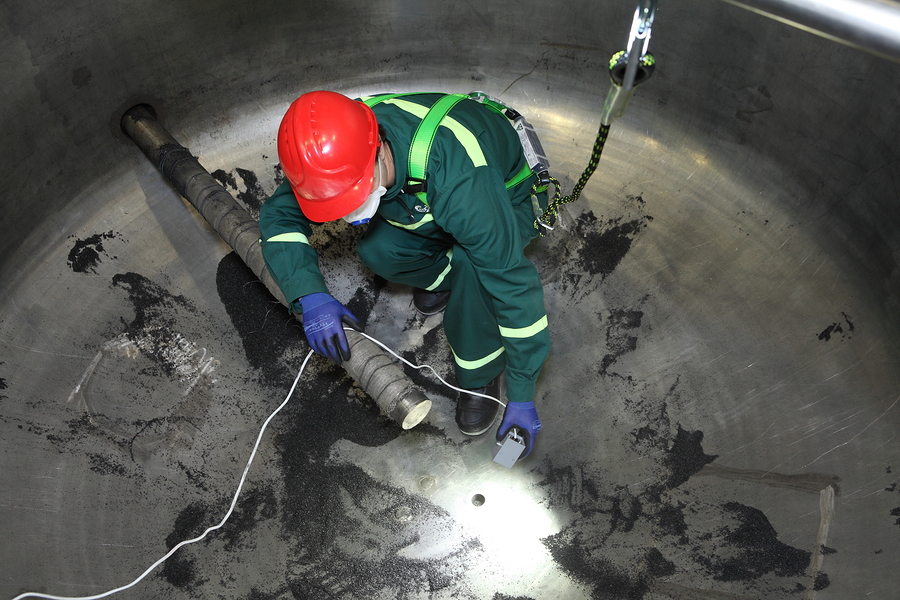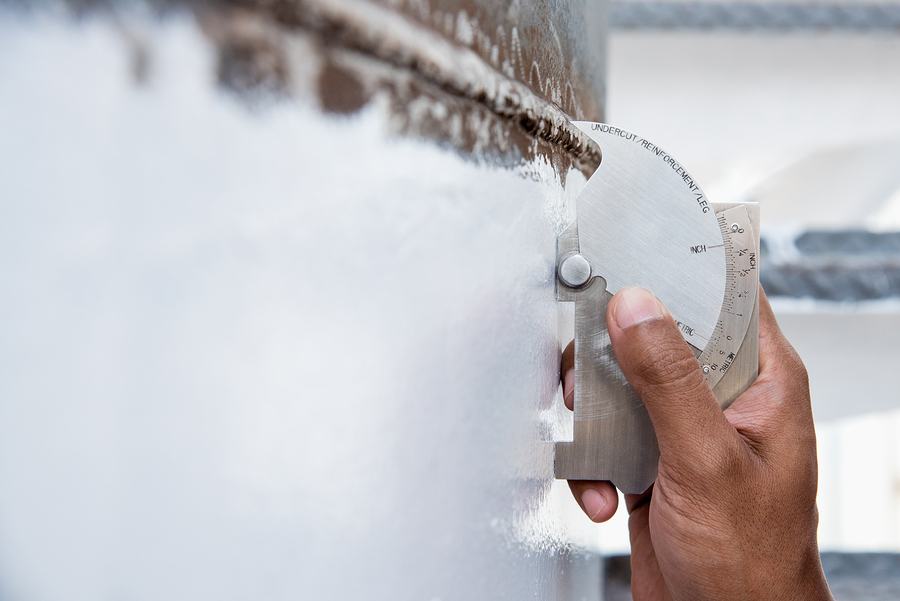Metal and stainless steel storage tanks often contain highly corrosive or caustic materials that degrade and break down their containers. Conducting regular aboveground tank inspections is incredibly important for detecting any potential storage tank failures that could be detrimental to facilities, personnel, and the environment. Inspections can help plant leaders catch red flags at the onset of problems before they become full blown disasters. So, how do inspectors know what exactly to look for?

Tank inspection standards
Today, many standards exist for inspectors to use as guidelines for identifying issues and determining what specifications facility leaders should meet upon tank inspections. The American Petroleum Institute (API) has established several key standards to help inspectors recognize risks. One such standard includes the API 653 standard, which “provides minimum requirements for maintaining the integrity of such tanks after they have been placed in service and addresses inspection, repair, alteration, relocation, and reconstruction.”
Tanks should only be inspected by a licensed, certified API 653 inspector. An API 653 inspector must have at least four years’ experience with storage tanks and pass a specialized test to prove his or her competency in the field. He or she should inspect various safety components, including tank location, materials and construction, spill control, and so forth. Tank inspections should also include tank integrity inspection aspects including roofs, shells, and bottom structures; corrosion analysis; and settlement evaluation. This type of inspection helps experts identify leaks into catchment containers or groundwater, determine and monitor corrosion rates, pinpoint maintenance and repair tasks and, most important, prevent large scale tank failures that pose real risks.
Inspections should occur at the following intervals:
- Tank operators should conduct internal inspections once every five years. In this case, the inspector is not required to be certified but simply knowledgeable enough to identify problems or potential problems.
- Certified API 653 inspectors should perform external inspections every five years based on regulatory requirements.
- Owners and facilitators must also have certified inspectors conduct internal API 653 inspections every 10 years.
It’s important to keep maintenance and inspections records on hand and up to date. Plant managers should also record any follow up actions they take to address hazards found during inspections.
Tank corrosion
Both internal and external inspectors should look at high risk areas where piping and metal containers are likely to corrode. Inspectors can look for corrosion along weld or sealant lines. Other areas of concern include piping corrosion, bottom and roof corrosion, as well as any other signs of leaks, failures, or weak points that can cause tank malfunctions. Over time, monthly inspectors should be able to determine the rate at which corrosion is taking place in storage tank systems. Depending on the holding materials and types of storage containers, corrosion rates will vary. Plant leaders can use these corrosion rates to better plan for future repairs and part replacements based on how long it will take their systems to eventually fail.

To calculate corrasion rates, include the following factors:
- Weight loss — the decrease in metal weight during the reference time period
- Density — density of the metal
- Area — total initial surface area of the metal piece
- Time — the length of the reference time period
To make the process easier, inspectors can use a corrosion rate calculator. However, remember that knowing your corrosion rates is not enough: You’ve also got to take action. Understand what causes corrosion and work to proactively avoid it. For instance, always use corrosion resistant linings to reduce maintenance costs and protect your facility’s viability.
We are dedicated to your success and safety; repair services are one of the ways we meet that commitment. Are your tanks in need of replacement, repair, or linings? Contact us! We’ll help you determine the safest and most cost effective route to keep your tanks in production.
